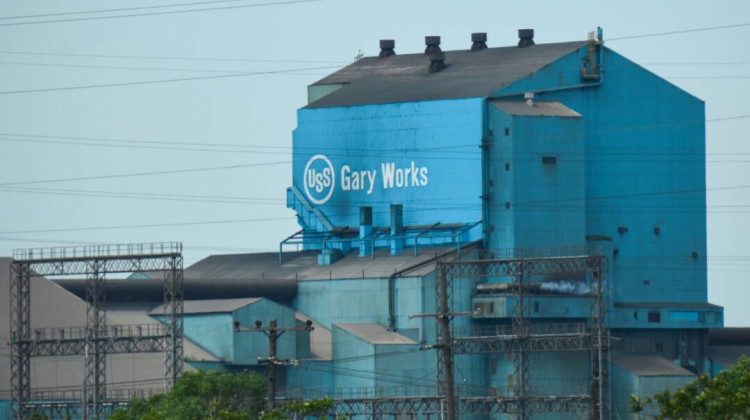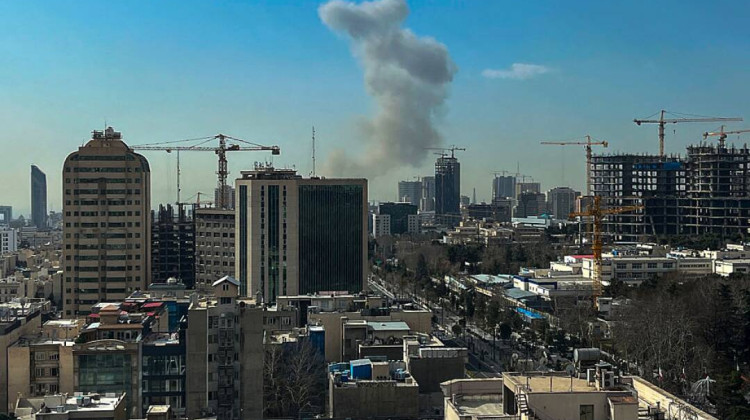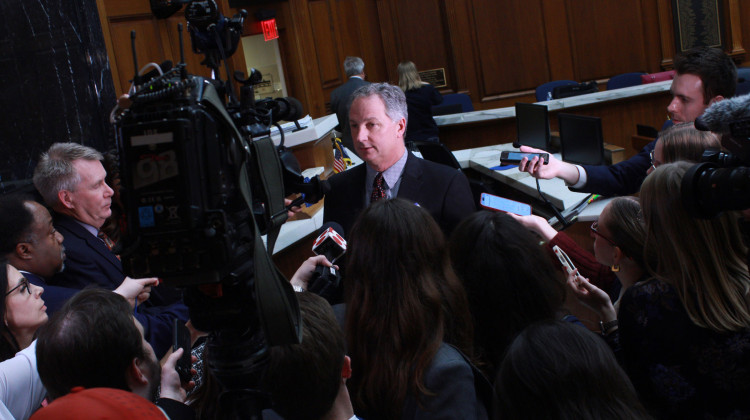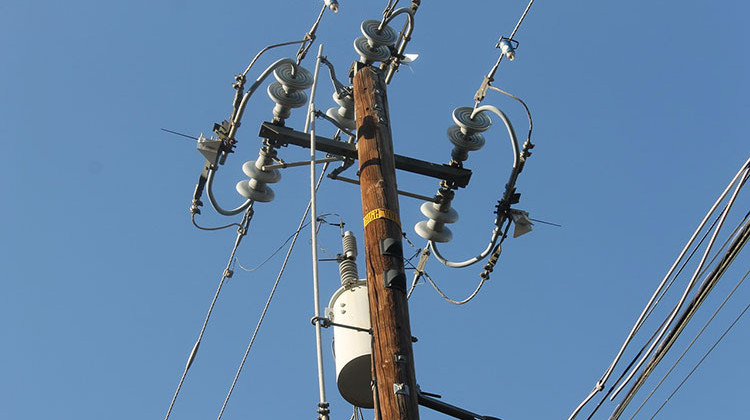
Blast furnaces — like the ones at U.S. Steel Gary Works — use coking coal to convert iron ore into molten metal.
Eric Allix Rogers / FlickrNippon Steel plans to reline a blast furnace at U.S. Steel Gary Works next year as part of its more than $3 billion investment in the plant. The Japanese company acquired U.S. Steel in June.
Blast furnaces use coking coal to convert iron ore into molten metal. The process produces a lot of air pollution and uses a lot of energy. Because they get so hot, the bricks that line the towering furnaces need to be replaced every 15 to 20 years.
Industrious Labs is a nonprofit that aims to decarbonize heavy industry. It said relining a blast furnace is a major financial investment for steelmakers and that can lock in decades of harmful pollution.
People living near steel plants are at a greater risk for lung and heart problems as well as certain cancers. At a recent community meeting, Gary Councilman-At-Large Kenneth Whisenton said he was in southwest Michigan a few weeks ago and didn't need his asthma inhaler at all. In Gary, he uses it every day.
"I think growing up here, the common misconception is that air quality is a luxury, not a birthright," Whisenton said.
READ MORE: Northwest Indiana advocates sue EPA for delaying steel pollution standards
Join the conversation and sign up for the Indiana Two-Way. Text "Indiana" to 765-275-1120. Your comments and questions in response to our weekly text help us find the answers you need on climate solutions and climate change at ipbs.org/climatequestions.
Though the relining is a major investment, Gary Common Council President Lori Latham said it's still a temporary fix compared to modernizing the plant. She expressed concern about the company's move considering it makes up a large part of the city's tax base.
"When we hear our steel mill saying that they're not interested in making longer-term investments that we know would transition our steelmaking processes into something more sustainable — that's a signal that maybe they aren't preparing to stay," Latham said.
Gary residents said they want U.S. Steel to use direct reduced iron instead of coking coal — which they say would cut pollution significantly.
No one at U.S. Steel was available for comment.
Rebecca is our energy and environment reporter. Contact her at rthiele@iu.edu or on Signal at IPBenvironment.01. Follow her on Twitter at @beckythiele.
 DONATE
DONATE








 Support WFYI. We can't do it without you.
Support WFYI. We can't do it without you.